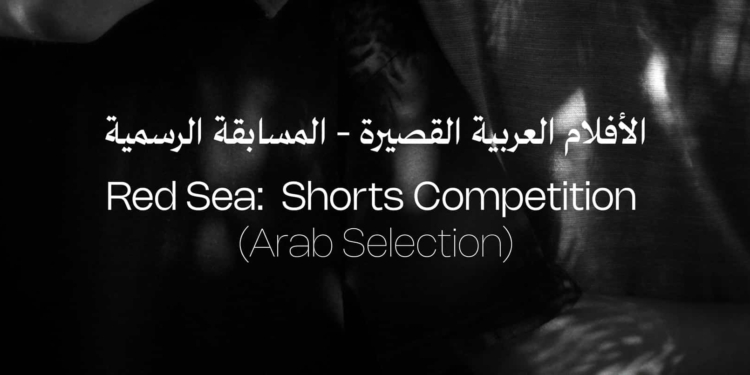As the fifth edition of the Red Sea International Film Festival (RSIFF) approaches, the festival has revealed the official lineup for its Arab Shorts 2025 program, spotlighting eleven compelling short films from Saudi Arabia, Palestine, Lebanon, Egypt, Morocco, Iraq, and the UAE. Screening from December 4–13, 2025, in Jeddah’s historic Al-Balad district, the festival transforms the city once again into a vibrant hub for cinema, where centuries-old streets meet contemporary storytelling.
A Tapestry of Voices and Perspectives
Since its inception, RSIFF has championed the diversity of Arab storytelling, and this year’s Arab Shorts program continues that mission. The selection brings together emerging filmmakers whose works probe themes of memory, identity, and belonging with subtlety and depth. Intimate yet daring, these films explore the complex realities of contemporary Arab societies, blending realism, poetry, and introspection.
Described by the festival as “a new wave of distinctive voices,” the Arab Shorts showcase the cultural richness of the Arab world while resonating with universal human emotions. Each film inhabits its own unique territory—whether it’s the body, grief, faith, fear, transmission, or solitude—yet all share a common purpose: giving form to the inner turbulence of a generation observing, questioning, and redefining itself.
The Selected Films
Coyotes, directed by Said Zagha (Palestine)
Against the backdrop of a nighttime West Bank road, a Palestinian surgeon’s drive home after a grueling shift becomes a transformative journey. Zagha captures the fatigue, fear, and quiet resilience of daily life under occupation, where silence weighs heavier than words.
Empty Lands, directed by Karim Eldin El Alfy (Egypt)
A loyal government officer and his wife move into a home once occupied by a displaced family. Traces of the previous residents, particularly a missing girl, stir unease. The film serves as a subtle allegory of guilt and memory, exploring what remains when loyalty collides with injustice.
Quo vadis, Meryem!, directed by Amine Zeriouh (Morocco)
Visiting a dying friend, a woman attempts to reignite her marriage, only to unearth hidden familial tensions. Zeriouh offers a nuanced portrait of a couple, where unspoken words become characters themselves.
Umbilical Cord, directed by Ahmed Hasan Ahmed (UAE)
A man races against time, haunted by unanswered calls, in a poetic odyssey through anxiety and hope. The film’s rhythmic editing and crisp cinematography reflect the inner tension of a soul suspended between urgency and redemption.
With the Wind, directed by Inès Lehaire (Morocco)
An aging florist decides to close his shop, giving away his remaining flowers in a final journey. Behind this simple act lies a meditation on loss, transmission, and the beauty of farewell. Lehaire crafts a delicate film imbued with silence, where each bouquet becomes an offering to time.
Beyond the Mind, directed by Lanya Nooralddin (Iraq)
Through the story of Mekhak, a loyal donkey abandoned by his family, the film becomes a poignant allegory of devotion and rejection. Nooralddin examines loyalty and solitude with tragic intensity, creating a dialogue between human and animal in a shared cry of incomprehension.
Irtizaz, directed by Sara Balghonaim (Saudi Arabia)
At a funeral, a young divorcée navigates a silent competition to assert her worth. Balghonaim delivers a sharp critique of gender and class dynamics, revealing the power of unspoken rules in Saudi social spaces.
Opening Ceremony, directed by Hussain Almutlaq (Saudi Arabia)
A nine-year-old boy, chosen to cut the ribbon at a cultural center opening, must secretly deliver an envelope for his mother. The film captures a moment where innocence confronts moral responsibility.
The Sea Remembers My Name, directed by Hussein Hossam (Egypt)
After one twin drowns, the surviving brother assumes his identity in a desperate attempt to reclaim his father’s love. Hossam treats grief with quiet poignancy, where the sea becomes both memory and mirror.
What If They Bomb Here Tonight?, directed by Samir Syriani (Lebanon)
During a tense night, a Lebanese couple is paralyzed by fear of an imminent airstrike and the impossible choice between fleeing and staying. Syriani renders the psychological strain with precision, exploring a country perpetually on edge.
She’s Swimming, directed by Liliane Rahal (Lebanon)
After her cousin dies in a plane crash, a filmmaker embarks on an introspective journey through nature. Through the lens of grief, Rahal contemplates renewal and continuity, with the sea once again serving as a site of healing.
A Mirror of Contemporary Arab Life
Bringing together these eleven stories, the Red Sea International Film Festival underscores its role as a crucial platform for emerging Arab cinema. Each film, in form and tone, reflects a cinema in flux—free from convention, often intimate, yet invariably political. Whether from Riyadh, Ramallah, Beirut, or Casablanca, these young filmmakers share a pressing need: to depict reality, to voice the unspeakable, and to amplify voices long marginalized.
Through these short films, RSIFF celebrates not only the geographical and linguistic diversity of the Arab world but also its creative vitality, rooted in local realities while engaging in a global dialogue. In Jeddah, amid the stones of Al-Balad and the glow of the port, these short stories promise to resonate long after the final screening, echoes of a cinema in full renaissance.
Neïla Driss








